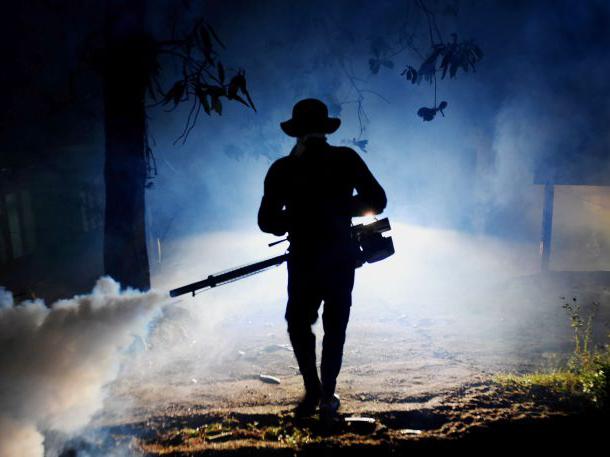Sri Lanka suffers dengue fever outbreak as 300 killed and hospitals reach capacity
Stagnant pools left by monsoon rains prove ideal breeding ground for mosquitoes

An outbreak of dengue virus has killed around 300 people so far this year in Sri Lanka and hospitals are stretched to capacity, health officials said on Monday.
They blamed recent monsoon rains and floods that have left pools of stagnant water and rotting rain-soaked trash — ideal breeding sites for mosquitoes that carry the virus.
The International Federation of Red Cross and Red Crescent Societies is scaling up emergency assistance to Sri Lanka with the Sri Lanka Red Cross to help contain the outbreak.
“Dengue patients are streaming into overcrowded hospitals that are stretched beyond capacity and struggling to cope, particularly in the country's hardest hit western province,” Red Cross/Red Crescent said in a statement.
According to the World Health Organisation, dengue is one of the world's fastest growing diseases, endemic in 100 countries, with as many as 390 million infections annually. Early detection and treatment save lives when infections are severe, particularly for young children.
The Sri Lankan government is struggling to control the virus, which causes flu-like symptoms and can develop into the deadly haemorrhagic dengue fever.
The ministry of health said the number of dengue infections has climbed above 100,000 since the start of 2017, with 296 deaths.
“Ongoing downpours and worsening sanitation conditions raise concerns the disease will continue to spread,” Red Cross/Red Crescent said.
Its assistance comes a week after Australia announced programmes to help control dengue fever in Sri Lanka.
“Dengue is endemic here, but one reason for the dramatic rise in cases is that the virus currently spreading has evolved and people lack the immunity to fight off the new strain,” Novil Wijesekara, head of health at the Sri Lanka Red Cross said in a statement.
Reuters
Join our commenting forum
Join thought-provoking conversations, follow other Independent readers and see their replies
Comments
Bookmark popover
Removed from bookmarks